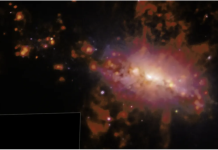Writer Megan Warrender looks at strengthening research and innovation in strategically important areas such as automation, antibiotic resistance and quantum technology
As of December 2019, the Swiss Government announced it is launching six more National Centres of Competence in Research (NCCR) as part of Swiss National Science Foundation (SNSF) research funding. This was announced by Federal Councillor Guy Parmelin to start in 2020 with the aim to strengthen research and innovation in strategically important areas such as automation, antibiotic resistance or quantum technology. For over 60 years, the SNSF has invested in researchers and their ideas. The organisation was founded in 1952 with the general aim of making sure Swiss Research remains at a high level, especially after the Second World War. Today, the SNSF supports around 15,000 outstanding researchers.
The Federal Government initially set up the NCCRs in 2001 as a way to fund networks carrying out top-quality, long-term basic research. It attaches particular importance to interdisciplinary approaches as well as innovative issues within disciplines. These six new NCCRs form the fifth series of the funding scheme and come about after the SNSF issued its call for proposals for this series in 2017. It received more than fifty proposals in response. The SNSF subjected them to close scientific scrutiny in a two-stage process. Matthias Egger, President of the National Research Council, stated that “The international experts and our evaluation bodies agreed that the proposals were all of an impressively high quality.” (1)

The six NCCRs in the fifth series are outlined in more detail below:
• NCCR “AntiResist”: research and development of new approaches to combating antibiotic-resistant bacteria.
Professor Christoph Dehio, University of Basel.
Federal funding 2020–2023: CHF 17 million.
• NCCR “Dependable Ubiquitous Automation”: improving the reliability and flexibility of intelligent systems in areas such as energy management, mobility, and industrial manufacturing.
Professor John Lygeros and Professor Gabriela Hug, ETH Zurich.
Federal funding 2020–2023: CHF 15.7 million.
• NCCR “Evolving Language”: investigation of the evolution of language. Applying the results in areas such as medicine or language recognition (artificial intelligence).
Professor Balthasar Bickel, University of Zurich, and Professor Anne-Lise Giraud, University of Geneva.
Federal funding 2020–2023: CHF 17 million.
• NCCR “Microbiomes”: investigating micro-organism interaction and its impact within various systems (humans, animals, plants and the environment) – potential applications in medicine, environmental science and nutrition.
Professor Jan Roelof van der Meer, University of Lausanne, and Professor Julia Vorholt, ETH Zurich.
Federal funding 2020–2023: CHF 16.1 million.
• NCCR “SPIN”: development of small, fast and scalable silicon-based qubits as the building blocks of a new information-processing technology.
Professor Richard Warburton, University of Basel.
Federal funding 2020–2023: CHF 17 million.
• NCCR “Suchat”: laying the groundwork for improving the sustainability, resource efficiency and carbon footprint of chemical processes and products, and of the chemical industry as a whole (sustainable chemistry).
Professor Javier Pérez-Ramírez, ETH Zurich, and Professor Jérôme Waser, EPF Lausanne
Federal funding 2020–2023: CHF 17 million.
These proposals, as you can see, span vast research areas. Each one will focus on high-quality, specific research in their field, which echoes the wider aims of the SNSF. In its mission statement, the SNSF describes how it aims to act in the best interests of researchers, political authorities, the general public, and its own employees. It defines the ambitions and values informing its work, which are structured by quality (promoting scientific excellence and expecting their own performance to be of a high standard), independence (operating autonomously and evaluating impartially), responsibility (taking measures to ensuring they are a reliable partner fulfilling every task judiciously, always acting ethically), and fairness (making well-founded decisions while respecting equal opportunities.)
“knowledge is the key to the future. Research creates knowledge.”
On the basis of the mission statement, the SNSF derives strategic aims and specific measures for the coming years. These measures are aimed at ensuring high quality standards in research funding and at improving internal processes and organisational structures.
As stated on their site “knowledge is the key to the future. Research creates knowledge.” When appointed as president in 2017, Matthias Egger explained that “more than ever before, we have to highlight the importance – short and long term – of basic research in Switzerland. It plays a key role in the education system, contributing to our innovation potential, to the strength of our economy and to the wellbeing of everyone living in Switzerland.” (2) His statement will be carried through to 2020, with the launch of the new NCCR’s shaping the future of research funding in Switzerland.
References
1. http://www.snf.ch/en/researchinFocus/newsroom/Pages/news-191216-new-national-centres-of-competence-in-research.aspx
2. http://www.snf.ch/en/researchinFocus/newsroom/Pages/news-160923-press-releases-matthias-egger-new-president-national-research-council-snsf.aspx
Editor's Recommended Articles
-
Must Read >> Finland: A framework for genetic research














